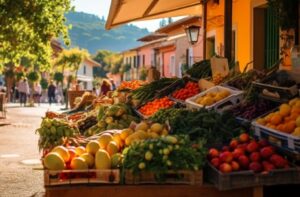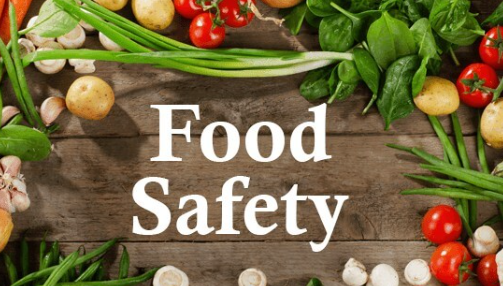Food farming, the backbone of our agricultural systems, plays a pivotal role in sustaining global food security and nourishing communities around the world. From traditional family farms to large-scale commercial operations, the art and science of food farming encompass a diverse array of practices, techniques, and philosophies. This comprehensive exploration delves into the multifaceted world of food farming, shedding light on its significance, challenges, and future directions.

The Importance of Food Farming
Food farming is essential for meeting the nutritional needs of a growing global population and ensuring food security for future generations.
Sustaining Food Security
Food farming provides the foundation for a stable and reliable food supply chain, ensuring access to nutritious and affordable food for individuals and communities worldwide. By cultivating a diverse range of crops and livestock, food farmers contribute to the resilience and sustainability of food systems.
Supporting Rural Livelihoods
Food farming is a source of livelihood for millions of people, particularly in rural areas where agriculture is a primary economic activity. Smallholder farmers and family-owned farms play a crucial role in local economies, providing employment opportunities and contributing to community development.
Diversity in Food Farming Practices
Food farming encompasses a wide range of practices and techniques tailored to different climates, landscapes, and cultural contexts.
Conventional Agriculture
Conventional agriculture relies on modern technologies, machinery, and synthetic inputs such as fertilizers and pesticides to maximize yields and efficiency. While conventional farming methods have led to increased productivity, they also raise concerns about environmental sustainability and long-term soil health.
Organic Farming
Organic farming emphasizes natural and sustainable practices, avoiding synthetic chemicals and genetically modified organisms (GMOs). These farmers prioritize soil health, biodiversity, and ecological balance, often employing techniques such as crop rotation, composting, and biological pest control.
Regenerative Agriculture
Regenerative agriculture goes beyond sustainable practices to actively restore and enhance ecosystem health and resilience. Such farmers focus on building soil organic matter, improving water retention, and fostering biodiversity to create thriving and resilient agroecosystems.
Challenges Facing Food Farming
Large scale farming faces numerous challenges, including environmental degradation, climate change, and socioeconomic disparities.
Environmental Degradation
Intensive agricultural practices can lead to soil erosion, water pollution, and loss of biodiversity, degrading natural ecosystems and threatening long-term food security. Sustainable farming practices and conservation efforts are needed to mitigate environmental impacts and promote ecosystem resilience.
Climate Change Vulnerability
Climate change poses significant challenges for large scale farming, including shifting weather patterns, extreme weather events, and unpredictable growing conditions. Farmers must adapt to changing climatic conditions through resilient crop varieties, water management strategies, and climate-smart agricultural practices.
Socioeconomic Inequities
Socioeconomic disparities in access to land, resources, and markets contribute to food insecurity and rural poverty. Smallholder farmers and marginalized communities often face barriers to accessing credit, technology, and market opportunities, limiting their ability to participate in and benefit from food farming.
Innovations and Future Directions
Despite the challenges, large scale farming is evolving through innovation, technology, and collaborative approaches to address pressing issues and unlock new opportunities.
Sustainable Agriculture Technologies
Advancements in agricultural technologies, such as precision farming, vertical farming, and hydroponics, are revolutionizing food production and resource management. These technologies enable farmers to optimize inputs, minimize environmental impact, and increase productivity in diverse farming environments.
Agroecological Approaches
Agroecology, an interdisciplinary approach that integrates ecological principles with agricultural practices, is gaining traction as a holistic and sustainable approach to food farming. Agroecological methods emphasize biodiversity, soil health, and community engagement, fostering resilient and regenerative food systems.
Localized Food Systems
Localized food systems promote community-based agriculture, short supply chains, and direct farmer-consumer relationships, enhancing food security, resilience, and sustainability. By prioritizing local production, distribution, and consumption, localized food systems reduce reliance on long-distance transportation and support small-scale farmers and rural economies.
Conclusion: Cultivating a Sustainable Food Future
Food farming is at the heart of our efforts to build a more sustainable and resilient food future. By embracing diversity, innovation, and collaboration, we can nurture nature’s bounty while safeguarding the health of our planet and communities. As we navigate the challenges and opportunities ahead, let us cultivate a shared vision of food farming that promotes equity, resilience, and abundance for all.











